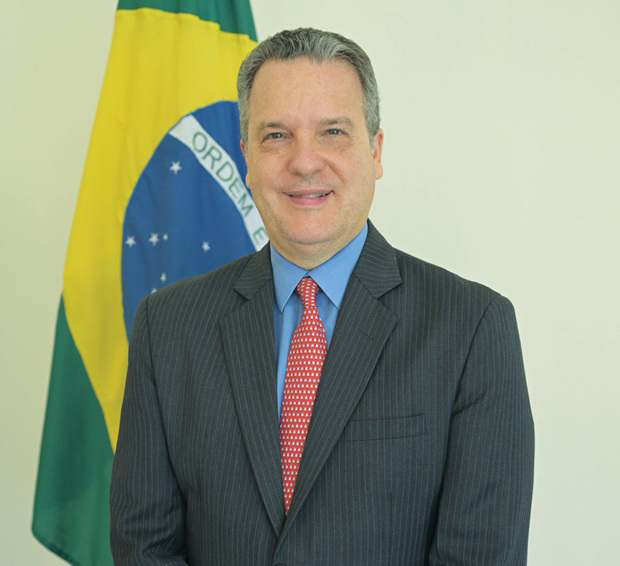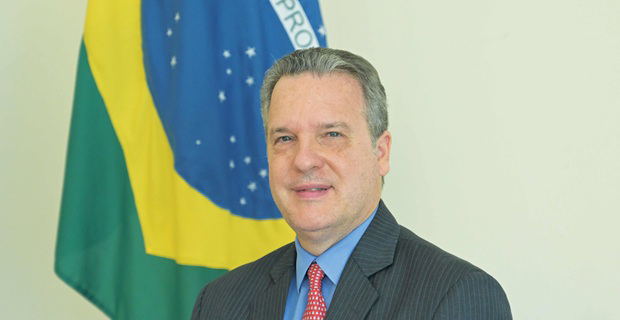“We Are Trusted Partners”

Trade and investments have been growing steadily. Which sectors hold the most potential for enhanced collaboration?
We see great promise in agriculture, defence, energy, digital infrastructure, and pharmaceuticals. Over the last two years, I’ve witnessed a surge in Brazilian business missions—73 in total—with strong interest in these sectors.
A major event is being planned in Mumbai by LIDE, a prominent Brazilian business group. It will be historic—their first in India.
India leads in pharma and IT, while Brazil excels in agriculture and energy. Are new synergies being explored?
Certainly. In energy, we are exploring cooperation in deep-sea fossil fuel extraction—Brazil has cutting-edge drilling technology. We’re eager to bring this expertise to India’s exploration efforts.
Biofuels are another area of collaboration. We are already engaged in dialogue to share Brazil’s biofuel experience with India.
India is the pharmacy of the world and it’s a major exporter of pharmaceuticals to Brazil. So, we are looking forward to attracting more investments from Indian pharmaceutical companies in order to produce medicines in Brazil, apart from importing from India. We would like India to manufacture in Brazil.
What about investments under Make in India?
Brazilian companies are coming to India to produce in India. Embraco, which produces air condition compressors, will start manufacturing compressors in India. It is a $130 million investment and the goal is to become the main producer of compressors in India.
Embraer, our aviation company, has signed a MoU with Mahindra a year back in order to produce airplanes for defence. Embraer is the third largest company in the world after Boeing and Airbus. It has set up a big office in India.
How is Brazil engaging with India in terms of climate change, clean energy, environmental sustainability, especially given the shared challenges faced by the global south?
Brazil and India defend the principle of climate justice or just transition, in the sense that each developing country of the global south, in order to transition to a green economy, will have to take into account its development needs while promoting social development. We work on the principle that every country has the right to devise its energy transition plan according to its realistic needs. Also, both countries recognise that the developed countries are more responsible for addressing such global challenges because historically they have been the major emitters of greenhouse gases for more than 200 years since the time the industrial revolution began. We came much later. Since 1992 when the process of climate change negotiations started, we have defended the principle of common but differentiated responsibilities. We are not shying away from our responsibilities but we understand that they hold a larger weight. Brazil and India have traditionally coordinated in multilateral negotiations on issues such as this because we have common values.











Comments.